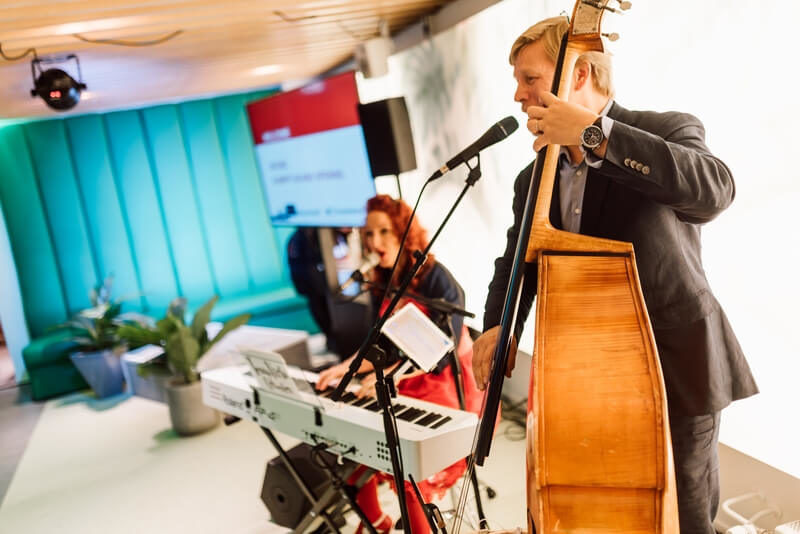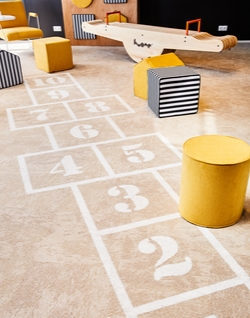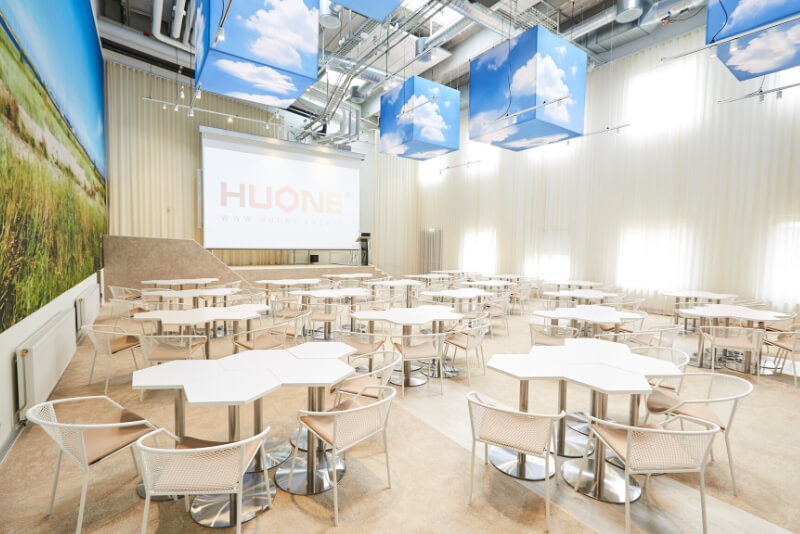We often hear that meetings and events are becoming more ‘experience-focused.’ What does the multi-sensory meeting mean? And how can we plan one? It is important because ultimately you want your event to be memorable. Here are a few ideas for your first multi-sensory event.
Meetings and events becoming more ‘experience focused.’ This is because meeting and events that engage multiple senses are more memorable for participants. It is also the reason why unique venues are growing in popularity.
With the importance of creating memories through experiences and inspiring delegates gaining more traction, we encourage venue teams to put in place a range of experiences that are unique and help meeting planners touch as many of the 5 senses; sight, sound, touch, taste and smell as possible., Mark Cooper, IACC’s CEO – Trends Report 2018
Here is a good example to start:
When Howard Schultz returned to Starbucks as CEO in 2008 during the darkest days of the recession, he had a three-day brainstorming event, where music played a crucial part. Participants were given instructions not to bring anything and were given iPod, earphones and a set of index cards. Starting with the song “Come Together,” familiar sounds by the Beatles continued to play. And one of the cards read “What does it take to reinvent an icon?”
Howard Schultz recalls the event in his book Onwards (p.73)
“Using The Beatles as a metaphor for an iconic brand was,
I thought, brilliant. It swept us into a creative process,
providing fresh context for us to examine and speak
about ourselves and the company.” (Schultz, 2011)
But it feels somehow like a far-fetched idea still. You feel like a multi-sensory meeting would always need a big consulting firm like Starbucks had, and days of planning and that only big companies with a big budget can have such events. Well, here are some easy, practical tips to incorporate sensory experience for your next meeting, to help your event and meeting become definitely more memorable.
- Include Social Eating – taste, sight, smell
- Let the Music Play its Part – sound
- Activate Your Body and Mind – touch
- Visual stimulation – sight
- Incorporate ambient scent – smell
1. Eating together is the most social experience
“Eating is the most social experience,” somebody in my family said…(but maybe the quote below sounds more reliable).
Eating together is a more intimate act than
looking over an Excel spreadsheet together.
That intimacy spills back over into work
— Kevin Kniffin, Professor of Economics, Charles H. Dyson Cornell University
According to the study by Cornell University, eating together acts as a social glue, an integral part of team building. It will help you multiply the experience, as it offers opportunities to sit face to face, communicate (maybe with strangers), enjoy new flavours perhaps.
More shared meals, more effective team performance, the relationship between two shows a clear sign that we have to consider. So, instead of looking at the eating part something ‘extra’ you ‘have’ to include in the program, why not make it into a part of the whole experience? It’ll be the easiest and the most natural way to strengthen ‘togetherness’ during an event, instead of the feeling of just ‘existing’ in the same space.
Don’t forget the presentation of the food. We eat with our eyes first. Food and drink should look appetizing and welcoming as they taste. Consider adding colourful cocktails, nice bite-size appetisers, mouth-watering desserts and so on. Make sure to have the tables set up with food where there is enough light. You don’t want the buffet tables ending up in the dark corner and make your guests wonder, ‘what is it that I’m putting on my plate?‘
2. Let the music play!
Like the example above, music can stimulate certain kinds of emotions, mood and behaviours, just as the visual stimuli. Music might work at a more subconscious level, but it can be used for a whole range of purposes, including in the context of meetings.
According to Niekerk, music can
- stimulate cooperation,
- cue memories of past experiences,
- reduce boundaries between attendees which will increase the trust,
- improve the focus of meeting participants as well as
- better the retention of information shared during the meeting

So, how do you decide what to play? Well, there’s no one magic song you should play. It depends on the goal of the meeting or event: what kind of emotion would you like to evoke? Well-chosen can set the right mood for the meeting. Do you want the participants to feel relaxed? Play something you would listen to on Sunday morning drinking your morning coffee. Do you want your participants to feel activated? Go with something upbeat, positive, which will put people in the mood for bouncing ideas, and be more open. Then, you might wonder: when do I hit play? Here is one easy choice you: before the meeting. Have you walked into a silent conference or a meeting room? It is not the best way to welcome and start the event. Put your guests in the right mood.
However, always remember that balance is always the key. Do not overload the attendees with blasting sound everywhere, because then, it will do the opposite overtaking the purpose of the event.
3. Activate your body and mind

Body and mind connection is well known nowadays. It is exactly the reason why we say it is crucial to have proper breaks during a long full-day meeting, and also why some people always prefer ‘walking meetings’(or walk and walk). Light movements such as taking a walk or stretching, will get your blood flowing and make you feel more focused and energised.
Try using several spaces (e.g. breakout rooms) with different topics or focuses! For instance, next brainstorming session, you can set a time a group spends in each room on different topics. This way, you will be forcing the attendees to move and switch topics which is one of the ways to optimise your brain performance according to Hintsa Performance. How about combining with point #2 and play the right music at the same time?
4. Visual stimulation for a lasting impression
Sight is the most effectively used sense in the event industry professionals. The meeting experience starts from the moment your guests walk into the venue. More business meetings and events are moving away from hotel venues to more unique venues. Don’t be afraid to break the chain and go for something different. Let’s admit that ballrooms and seminar rooms can be boring.
If your event is happening during the daytime, go for a place where you will have plenty of natural light. There is a saying that natural lighting is the best lighting you can have as an event professional. It is because natural light scientifically has the power to help us focus, get more done, and even make us happier; so who would say no to this free mood booster?
 (Image: Strand Room, HUONE Copenhagen)
(Image: Strand Room, HUONE Copenhagen)
5. Smell- powerful memory agent
Incorporate a scent into your next event to create a lasting memory. Have you heard of Smell-O-Vision? In the 1950s, when TV became popular, film theatres implemented a system where a smell will be released so that the viewer could ‘smell’ what was happening in the movie. It shows how long people have been trying to utilise our smell in creating memorable experiences! Do you have a special scent that triggers a specific time or memory? For instance, what’s the Christmas smell to you? What about summer?

Fancy walking into a Christmas party with the smell of mulled wine(Glöggi)?